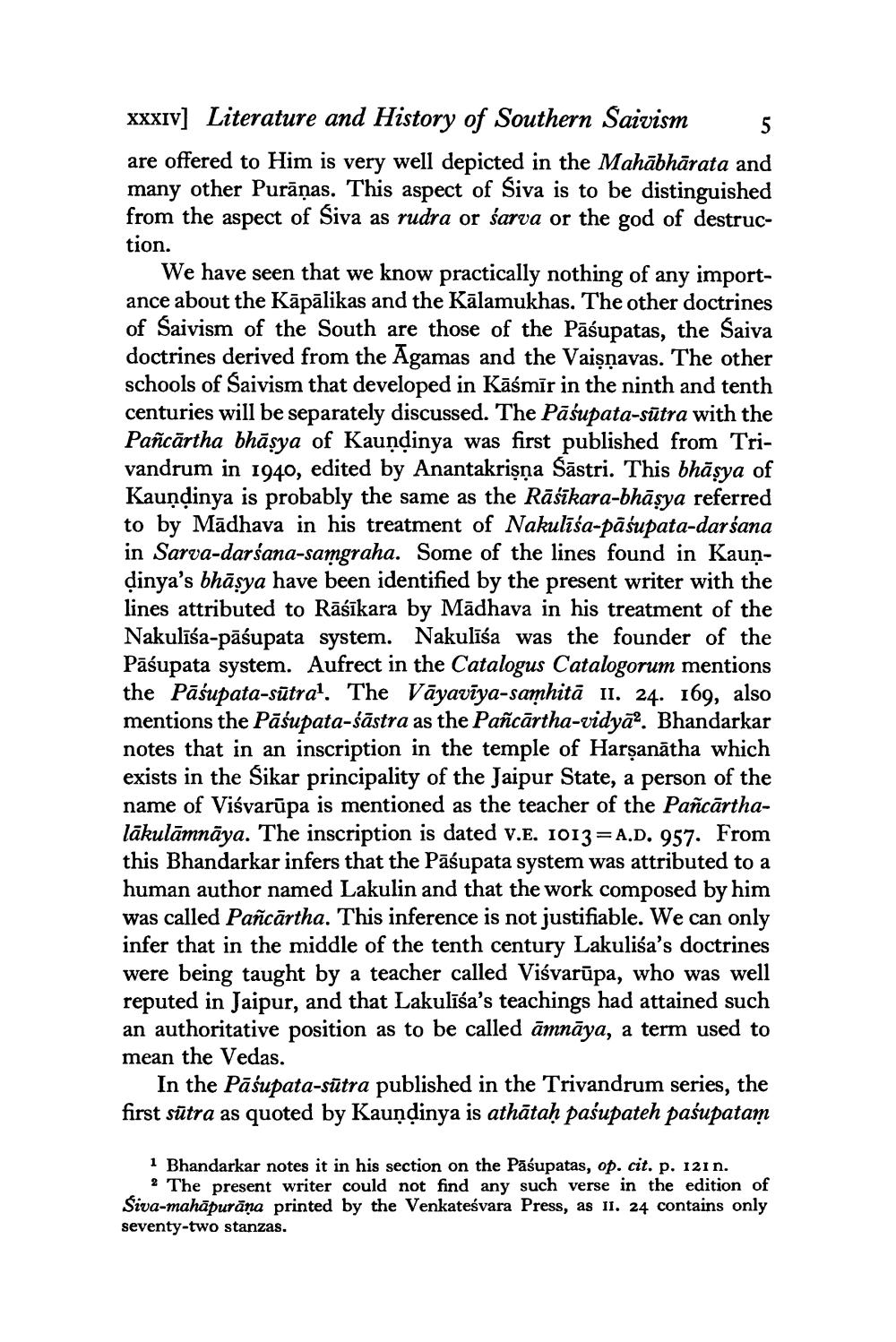________________
XXXIV] Literature and History of Southern Saivism 5 are offered to Him is very well depicted in the Mahābhārata and many other Purāņas. This aspect of Siva is to be distinguished from the aspect of Siva as rudra or śarva or the god of destruction.
We have seen that we know practically nothing of any importance about the Kāpālikas and the Kālamukhas. The other doctrines of Saivism of the South are those of the Pāśupatas, the Saiva doctrines derived from the Agamas and the Vaisnavas. The other schools of Saivism that developed in Kāśmīr in the ninth and tenth centuries will be separately discussed. The Pāśupata-sūtra with the Pañcārtha bhāşya of Kaundinya was first published from Trivandrum in 1940, edited by Anantakrişņa Šāstri. This bhāşya of Kaundinya is probably the same as the Rāśikara-bhāsya referred to by Mādhava in his treatment of Nakulīša-pāśupata-darśana in Sarva-darśana-samgraha. Some of the lines found in Kaundinya's bhāsya have been identified by the present writer with the lines attributed to Rāśīkara by Madhava in his treatment of Nakulīša-pāśupata system. Nakulīša was the founder of the Pāśupata system. Aufrect in the Catalogus Catalogorum mentions the Pāśupata-sūtra'. The Vāyavīya-samhitā II. 24. 169, also mentions the Pāśupata-śāstra as the Pañcārtha-vidyā. Bhandarkar notes that in an inscription in the temple of Harşanātha which exists in the Sikar principality of the Jaipur State, a person of the name of Višvarūpa is mentioned as the teacher of the Pañcārthalākulāmnāya. The inscription is dated v.e. 1013=A.D. 957. From this Bhandarkar infers that the Pasupata system was attributed to a human author named Lakulin and that the work composed by him was called Pañcārtha. This inference is not justifiable. We can only infer that in the middle of the tenth century Lakulisa's doctrines were being taught by a teacher called Viśvarūpa, who was well reputed in Jaipur, and that Lakulīša's teachings had attained such an authoritative position as to be called āmnāya, a term used to mean the Vedas.
In the Pāśupata-sūtra published in the Trivandrum series, the first sūtra as quoted by Kauņdinya is athātaḥ paśupateh pasupatam
1 Bhandarkar notes it in his section on the Pāśupatas, op. cit. p. 121n.
2 The present writer could not find any such verse in the edition of Siva-mahāpurāna printed by the Venkateśvara Press, as II. 24 contains only seventy-two stanzas.




